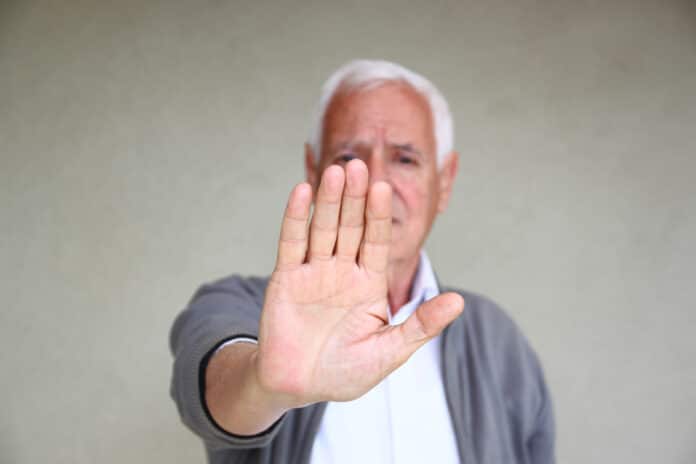
Men are more likely to die before the age of 70 from non-communicable diseases such as cancer, cardiovascular disease, and diabetes.
While genetics may play a role in some of these diseases, it is likely that gender norms are influencing men’s attitudes and approach to their long-term health.
Here are 7 common health mistakes many men make and how you can avoid them.
Underestimating High Blood Pressure
High blood pressure, or hypertension, is a silent killer. Many men don’t take high blood pressure seriously, viewing it as an inconvenience or something to be monitored but not actively managed.
It doesn’t typically present with obvious or debilitating symptoms, but high blood pressure can lead to life-threatening health complications such as stroke and heart attack.
If you have been diagnosed with hypertension, you may need to make lifestyle changes like eating healthier and getting regular exercise to keep your condition under control.
Avoiding Health Checkups
Many men avoid health checkups because they are embarrassed, see them as a waste of time, don’t like talking about their own health, or any number of other reasons.
Regular health checkups are key for detecting any changes in your health before they become serious problems. In addition to routine physical exams and immunizations, screenings for cholesterol, blood sugar, and prostate cancer should be done as recommended by your healthcare provider.
Skipping Skincare
Many men neglect their skincare routine, leaving them vulnerable to skin damage that can progress to affecting their overall health.
Things like moisturizers, sunscreen, and lotions are not merely for cosmetic purposes. Your skin forms the barrier between your vital organs and the outside world. If it is not properly taken care of, it can lead to infections, inflammation, and other health conditions.
For optimal skin health, always wear sunscreen when outdoors, and use lotions or moisturizers with natural ingredients to keep your skin hydrated.
Alcohol, Smoking, and other Risky Behaviors
Men may be more likely to engage in behaviors that put their health at risk, such as drinking alcohol, smoking cigarettes, or doing dangerous activities.
The reasons for this may vary widely, but the fact is, these risky behaviors can have serious consequences on your health, both immediately and long-term.
Alcohol and tobacco are two of the worst offenders when it comes to negative health impacts. Even small amounts of alcohol or nicotine can increase your risk for conditions such as liver damage, respiratory diseases, cardiovascular problems, cancer, and many other illnesses.
Avoiding these hazardous behaviors is key to staying healthy and protecting your body from long-term harm.
Unhealthy Exercise Routines
Engaging in regular physical activity is important for maintaining a healthy lifestyle. People with inactive lifestyles are significantly more likely to develop conditions such as obesity, diabetes, heart disease, depression, and age-related cognitive decline.
However, exercise can also be dangerous if done improperly or too aggressively. Many men may try to take the “no pain, no gain” approach to exercise, which can lead to overtraining, fatigue, and injury.
For optimal health, it is important to find the right balance of physical activity that is tailored to your needs. Speak to your doctor or a health professional to find the right exercise routine that takes into account any existing conditions you may have.
Not Managing Stress
Stress is generally considered to be an inevitable part of life. While this may be true, how you respond to stress can have a huge impact on your overall health.
Unmanaged or poorly managed stress can lead to a range of physical and mental health issues, such as depression, anxiety, headaches, stomach upsets, muscle tension, and fatigue. It can also weaken the immune system making it harder for the body to fight off infections.
It is important to take active steps in managing your stress in a healthy way. Instead of escaping your stress with alcohol, drugs, or junk foods, you’ll need to practice safe and effective coping mechanisms such as:
● deep breathing
● mindfulness meditation
● exercise
● creative art
● spending time in nature
Refusing Help
Too many people are unwilling to get the help they need. Men, in particular, may be reluctant to seek help due to feeling a sense of shame or not wanting to admit that they need assistance.
However, seeking help from professionals such as psychologists, doctors, and counselors can have immense positive benefits when it comes to improving your mental and physical health.
There are so many resources available that are specifically designed to help people overcome difficult life challenges. If you refuse to take advantage of them, you are only limiting your potential and missing out on a chance to improve your life.
Reaching out for help is not a sign of weakness or failure. It demonstrates your willingness to take control of your health and to make necessary changes that will lead you to a longer, healthier, happier life.


















